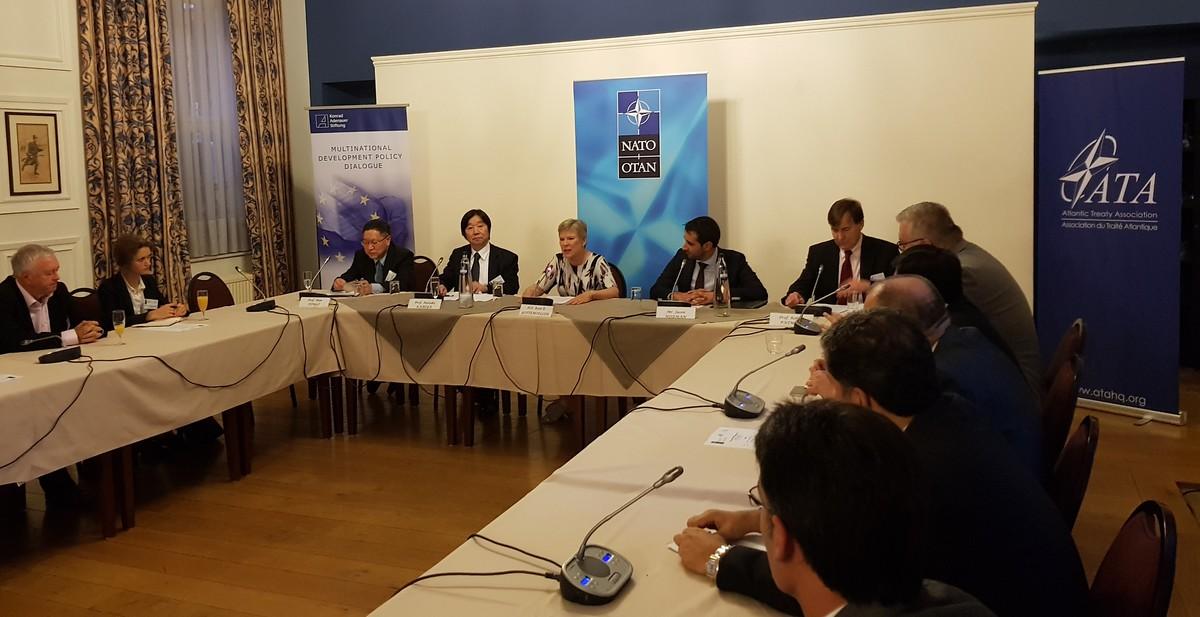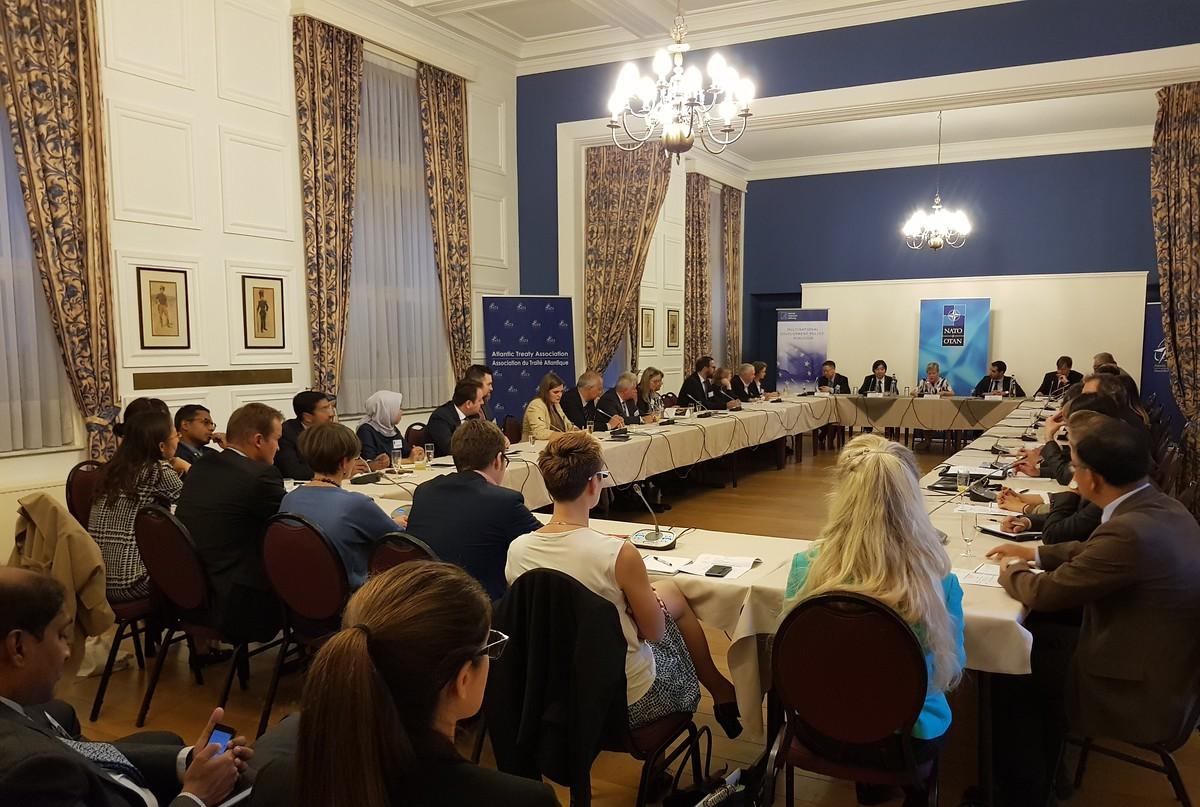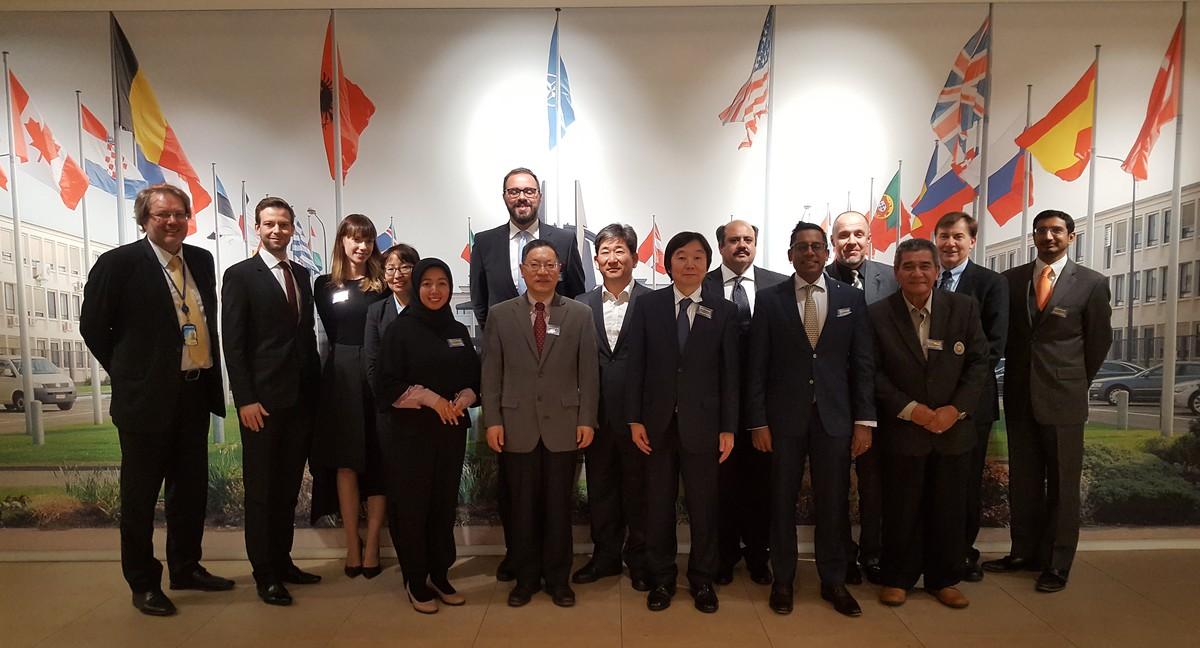7th NATO-Asia/Pacific Dialogue underlines benefits of regular exchange
Event Reports
Despite the geographic focus on the North Atlantic and the immediate neighborhood of its members, NATO cannot afford to ignore the developments in the Asia-Pacific. Likewise, countries in Asia must be aware of security developments in Europe and the role NATO plays in this. Simply put, insecurities in Asia – be it in the maritime domain, cyber space, due to growing armament or attempts by great powers to influence other states through unilateral actions – will eventually have an impact on the developments in Europe. The same is true for Asia which might see mid- and long-term effects if the security situation in Europe remains volatile.
The experts identified two broad lines of common challenges faced by NATO and Asian countries. The first of which is challenges to international rules and norms. Concrete threats in this field include the current moves by the North Korean regime to advance its nuclear missile programme and actions by Daesh which ignore basic rules of engagement. Likewise, Russian and Chinese activities in territorial disputes in Donbass and the South China Sea challenge the respect for international agreements and rules. All these conflicts weaken universal norms laid out in the UN-system. The responses to these challenges must and will be multilateral. However, the second area of common challenges is that those countries attempting to influence the current rules-based order prefer uni- or bilateral solutions. In absence of a global organization guarding these principles, it is necessary that regional organizations enhance their cooperation. Groupings like the EU, NATO, OSCE, ASEAN, ASEAN Regional Forum, East Asia Summit or G7 and G20 must adapt to these new challenges, learn from each other and work together.
Based on these overarching developments, the experts discussed three instruments for an enhanced cooperation between NATO and countries in Asia. Firstly, political dialogue on the track-1 and track-1.5 level has to be continued and reinforced. This will help states to achieve a higher level of understanding and raise awareness for the importance of regular exchanges. Secondly, the sharing of information on specific issues needs to be deepened. While NATO has no mandate to act in Asia militarily, both sides can share best practices, conduct joint research and learn from each other through joint trainings. Such specific issues include arms control and non-proliferation, confidence-building, cyber security, capacity-building and aspects in the maritime domain in which NATO has also cooperated with non-partners such as China and India. A third tool is the ability to work together in the military realm. Afghanistan exemplified the need for interoperability and that armies train according to a certain standard in order to avoid unintended clashes in action.
The Asian delegation consisted of representatives from the NATO partners across the globe in Asia – namely Australia, Japan, Korea, Mongolia, New Zealand, and Pakistan – as well as key security actors in Asia, such as China, India, Indonesia, Malaysia and Singapore. The highlight was a roundtable discussion with Deputy Secretary General Gottemoeller on "Creating Predictability in Asian and European Security Dynamics" on 16 October 2017. In the bilateral briefings the delegates received updates on NATO’s current agenda, the relations with Russia and the EU. This was followed by closed-door dialogue at the NATO Headquarters on 17 October 2017.
The "NATO-Asia/Pacific Dialogue" has been organized since 2011. It offers a unique opportunity for exchange on areas of common concern, networking, confidence-building and the sharing of analysis as well as information on issues of regional and international security. Its objective is to contribute to the construction of efficient and durable security cooperation between countries of the Asia-Pacific region, NATO and its member countries.
Provided by
Regional Programme Political Dialogue Asia
About this series
The Konrad-Adenauer-Stiftung, its educational institutions, centres and foreign offices, offer several thousand events on various subjects each year. We provide up to date and exclusive reports on selected conferences, events and symposia at www.kas.de. In addition to a summary of the contents, you can also find additional material such as pictures, speeches, videos or audio clips.





